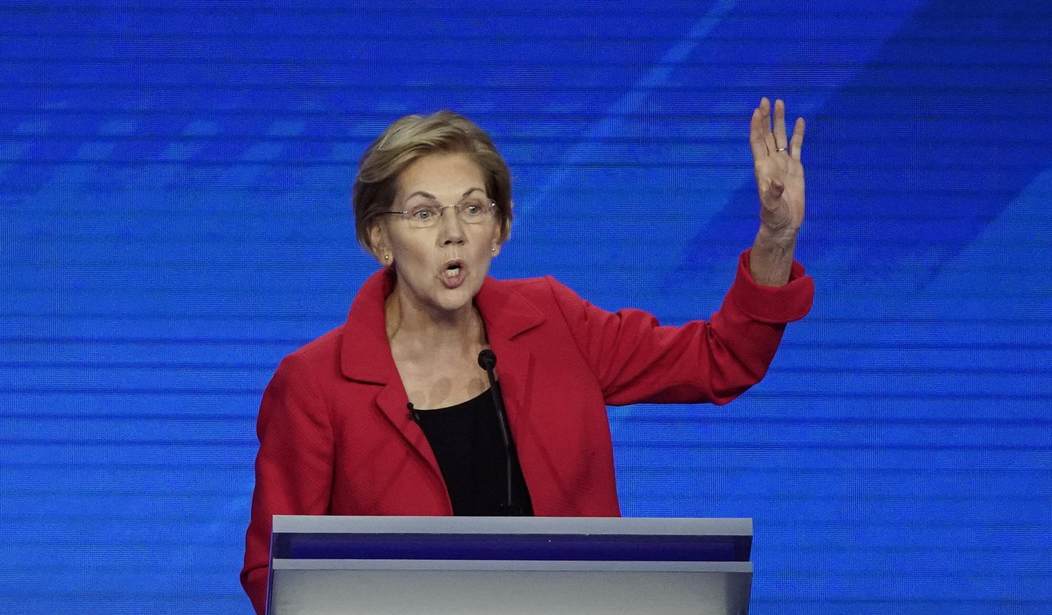The Wharton School of Economics at the University of Pennsylvania has released its own study of Democratic presidential candidate Elizabeth Warren’s “wealth tax” proposal and, to no one’s surprise, discovered that her revenue projections for how much the tax would add to the treasury are wildly optimistic.
Warren claims the tax will bring in $3.7 trillion over 10 years. The Wharton study reveals a more realistic number not based on fantasy-land assumptions: $2.3 trillion. Not only that, the tax will dramatically affect economic growth and shrink the wealth of the very people she claims to be helping: the middle class.
Of course, Warren’s proposal is political and her people made political assumptions about the projection. But what makes her faulty numbers important is that she is going to spend that cash — and much more — on government programs like Medicare for All and “free” college tuition.
- Senator Elizabeth Warren has proposed a wealth tax equal to 2 percent of net worth above $50 million and 6 percent of net worth above $1 billion, which her campaign estimates would raise $3.75 trillion over 10 years.
- PWBM estimates that the proposal would raise about $2.7 trillion over fiscal years 2021-2030, not including macroeconomic effects. Including macroeconomic effects, PWBM estimates that the proposal would raise about $2.3 trillion over the same period.
- PWBM projects that the proposal would reduce GDP by 0.9 percent in 2050 under the standard budget scoring convention that additional revenues reduce the deficit. If the revenues were instead spent on public investments, PWBM projects GDP in 2050 would fall between 1.1 and 2.1 percent, depending on the productivity of the investment. Average hourly wages in the economy in 2050, including wages earned by households not directly subject to the wealth tax, would fall between 0.8 and 2.3 percent due to the reduction in private capital formation.
While Warren claims that the wealth tax would pay for the many trillions in new spending, the Wharton study shows she is lying. Many trillions of dollars will be added to the national debt and the nation will be poorer.
Wharton is careful to draw a distinction between “productive” and “non-productive” spending. Spending $31 trillion on health care is not that productive, while additional funding for education is. Any way you cut it, Warren’s wealth tax will be a disaster.










Join the conversation as a VIP Member